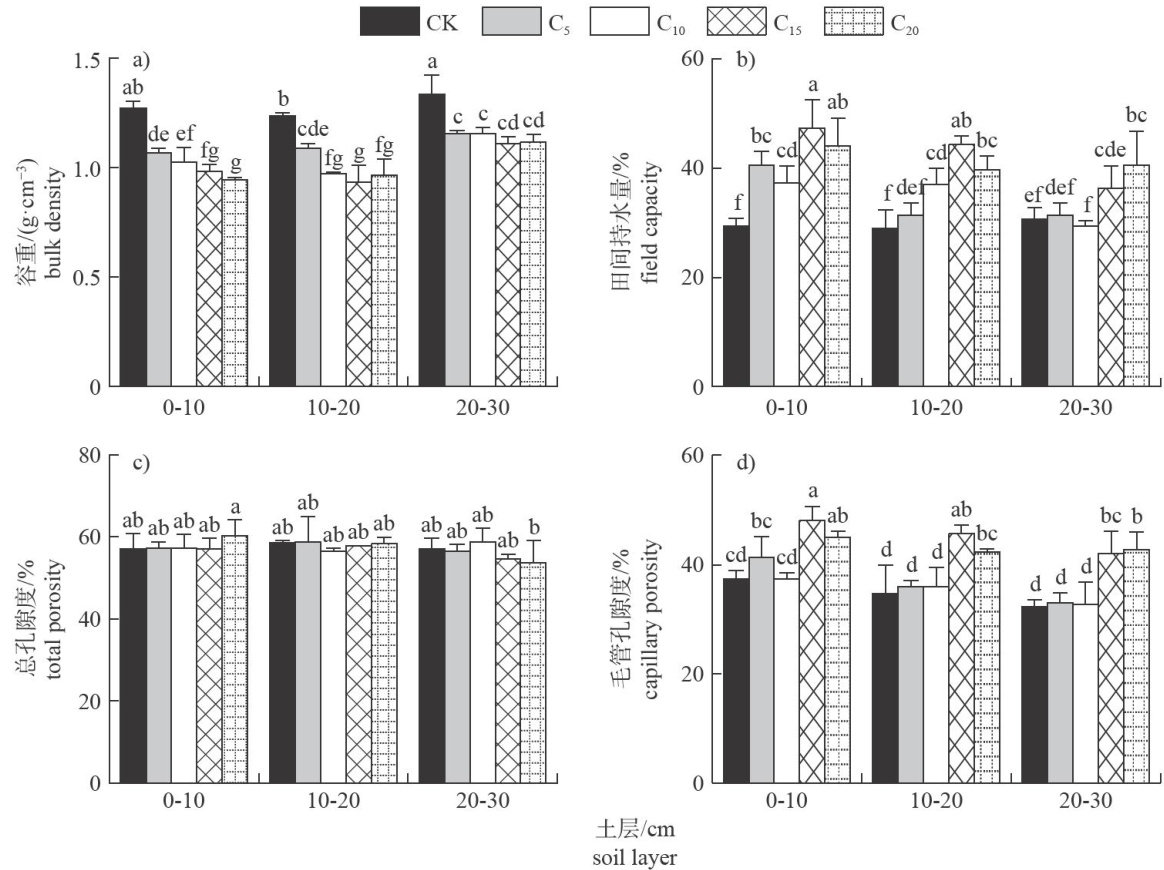腐熟稻壳对设施土壤理化性质及微生物群落的影响


打开文本图片集
中图分类号:S154.3 文献标志码:A 文章编号:1004-390X(2025)03-0164-
Abstract: [Purpose] To investigate the effects of rotted rice husks on soil physicochemical properties and microbial communities. [Methods] Five application amounts of rotted rice husks (CK:
0t/hm2 C5 :: 5t/hm2 : C10 : 10t/hm2 C15 : 15t/hm2 C20 20t/hm2) were added to the alkalized and compacted soil in the facility greenhouse. The soil physicochemical properties, plant agronomic traits,and microbial communities were analyzed by variance analysis, Spearman correlation analysis, and redundancy analysis. [Results] Compared with the control (CK),the application of rotted rice husks in the 0-30cm soil layer could increase the field capacity,capillary porosity, organic matter content and the proportion of small aggregates in the soil, as well as the plant height and stem diameter of crops, while reducing soil bulk density, pH value and the proportion of micro aggregates. In addition, the addition of roted rice husks obviously increased the relative abundance of soil microorganisms such as Proteobacteria,Bacteroidota and Basidiomycota,but had no significant effect on microbial diversity. Spearman heatmap analysis and redundancy analysis indicated that the application of roted rice husks could directly affect soil environmental factors, among which, pH, salinity, organic matter, bulk density and field capacity were the main environmental factors affecting the bacterial community structure, while salinity and field capacity were the main factors affecting the fungal community structure. [Conclusion] This study can provide theoretical basis and reference for the improvement of alkalized greenhouse soil, and technical support for the effective utilization of agricultural wastes such as rice husks.
Keywords: facility agriculture; rice husk; soil improvement; soil alkalization; soil microbial communities
设施农业因长期覆盖与微环境影响,极易诱发土壤碱化问题[。(剩余16968字)